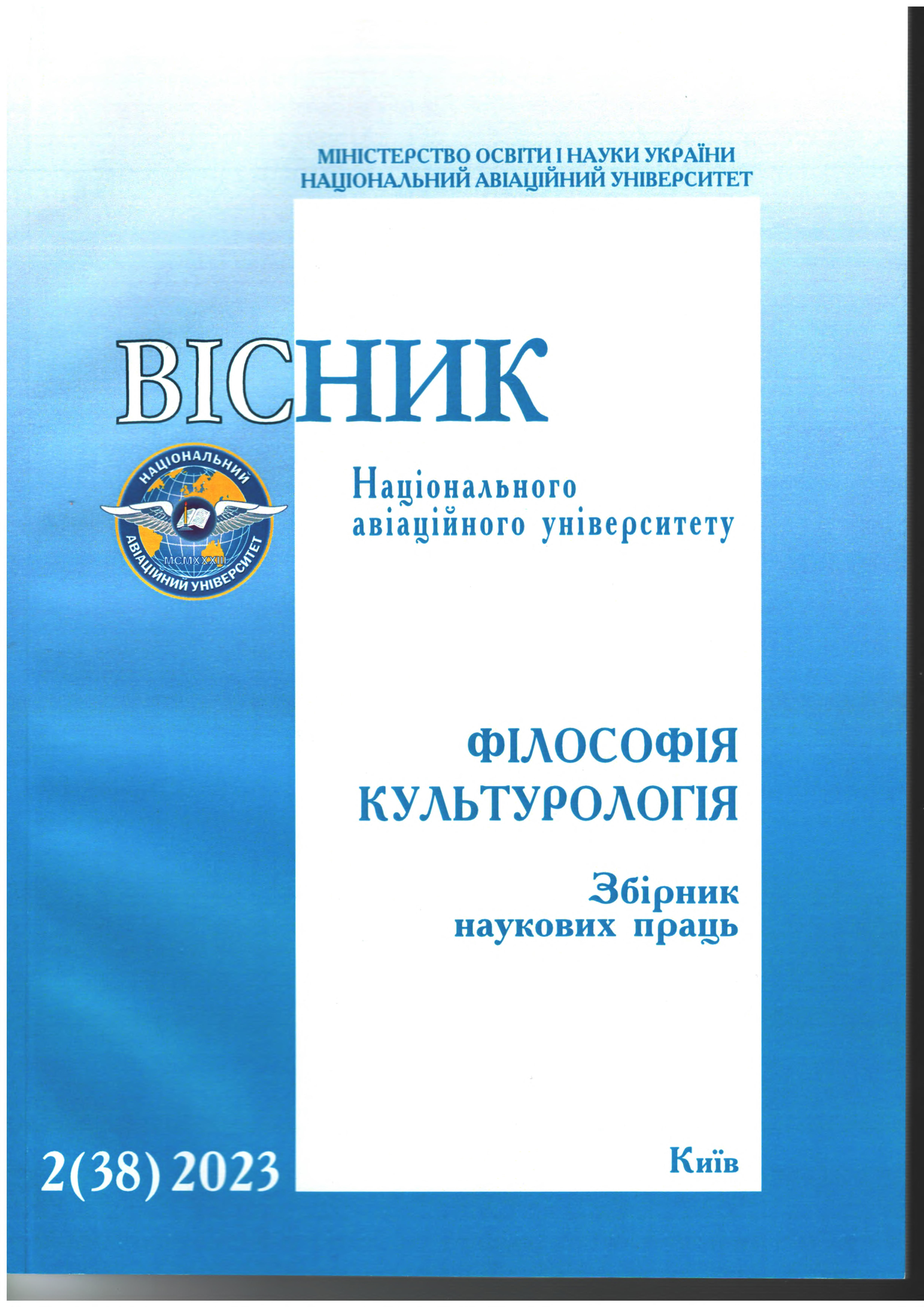PHILOSOPHICAL RECEPTION OF LANGUAGE TRANSFORMATION IN THE MEDIA CULTURE OF THE XXI CENTURY
DOI:
https://doi.org/10.18372/2412-2157.2.18093Keywords:
media culture, language of communication, culture of communication, communicative practices, informatization of society, information and communication technologiesAbstract
Introduction. Substantiates the relevance of the research topic. M. McLuhan's "Understanding Media" is analyzed for its foundational contribution to the study of language transformations in media culture. The aim and tasks. The aim is to outline the features of the transformation of the language of communication in various phenomena of modern media culture associated with the use of the latest information and communication technologies. Research methods are sociocultural and axiological methodological approaches, as well as methods of cultural-semantic analysis, hermeneutics, and dialogicity of philosophical points of view. Research results. Significant changes in the transformation of language in various communicative practices of media culture, which are caused by the emergence of the latest electronic means of communication at the end of the 20th and the beginning of the 21st centuries, are analyzed. Special attention is paid to changes in traditional means of language, as well as the emergence of the latest forms and types of audio-video production of modern media culture, which are not based on traditional language, but on the use of images, smileys, emoticons, simulacra, etc. Peculiarities of metaphor use in modern communication practices of media culture are investigated separately. In the discussion, the points of view of foreign and domestic researchers on the transformation of the language of modern media culture/cyber culture, which occurred due to the introduction of modern information and communication technologies in various communicative practices, are analyzed. In the conclusions, the main characteristics of those transformations that take place in modern media culture are outlined. It is shown that the emergence of new types and forms of electronic mass culture, such as Internet communication, video games, music videos, interactive TV programs, etc., leads not only to the formation of new sign and symbolic systems but also to a dangerous deformation of the language of communication in various social practices of information era.
References
Derrida J. Margins of Philosophy. The University of Chicago Press. 1982. 360 p.
Dery M. Escape «Velocity: Cyberculture on the boundary of centuries». 2007. Grove Press. 402 p.
McLuhan M. Understanding Media: The extensions of men. London & New York, 2014. URL:https://esidnopendata.files.
wordpress.com/2014/05/understanding-media-mcluhan.pdf
Naisbitt J. Mind Set! HarperCollins, e-books, 2009. 304 p.
Антіпова О. П. Трансформація мовної норми в умовах інформаційного суспільства. Вісник Національного авіаційного
університету. Серія: Філософія. Культурологія. Вип. 1(29). 2019. С.130-134. DOI: https://doi.org/10.18372/2412-2157.29.14073
Дротянко Л. Г. Цифровий вимір сучасного етапу цивілізаційного розвитку соціуму. Вісник Національного авіаційного
університету. Серія: Філософія. Культурологія. Вип. 1(33). 2021. С.16-21.
Кастельс М. Інтернет -галактика. Міркування щодо Інтернету, бізнесу і суспільства. К.: «Ваклер», 2007. 304 с.
Комаха Л. Г. Логічні засади аргументації у філософському знанні. Монографія. Центр учбової літератури, 2015. 360 с.
Крістева Ю. Полілог. К.:Вид-во Юніверс, 2004.480 с.
Маргароні М. Метафора. Енциклопедія постмодернізму. Вид-во Соломії Павличко «Основи», 2003. С. 262-263.
Мерщій Т. В. Особливості функціонування контркультурних груп в інтернет-середовищі в інформаційну еру. Вісник
Національного авіаційного університету. Серія: Філософія. Культурологія. Вип. 1 (21). 2015. С. 123-126.
Моос М. Симуляція (simulation). Енциклопедія постмодернізму. Вид-во Соломії Павличко «Основи», 2003. С.386.
Пенрод Д. Лінгвістика. Енциклопедія постмодернізму. Видво Соломії Павличко «Основи», 2003. С.236-240.
Пода Т. А. Соціокультурні аспекти феномена інтернет-залежності. Вісник Національного авіаційного університету.
Серія: Філософія. Культурологія. Вип. 2 (28). 2018. С. 107-111.
Сміт Д. Симулякр (simulacrum). Енциклопедія постмодернізму. Вид-во Соломії Павличко «Основи», 2003.
С. 384-385.


